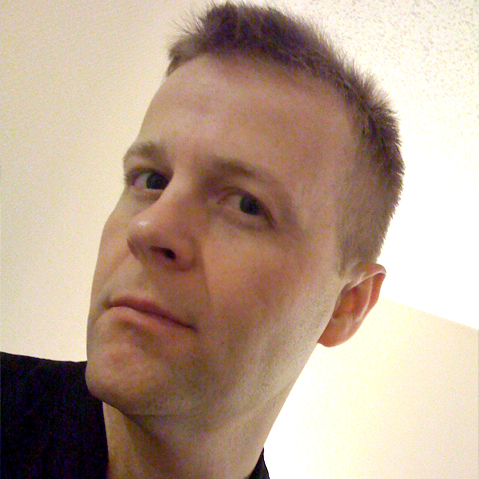
@Christianbok
Christian Bök is the author not only of Crystallography (2003), a pataphysical encyclopedia nominated for the Gerald Lampert Memorial Award, but also of Eunoia (2009), a bestselling work of experimental literature, which has gone on to win the Griffin Prize for Poetic Excellence. Bök has created artificial languages for two television shows: Gene Roddenberry’s Earth: Final Conflict and Peter Benchley’s Amazon. Bök has also earned many accolades for his virtuoso performances of sound poetry (particularly Die Ursonate by Kurt Schwitters).
His conceptual artworks (which include books built out of Rubik’s cubes and Lego bricks) have appeared at the Marianne Boesky Gallery in New York City as part of the exhibit Poetry Plastique (2001). The Utne Reader has recently included Bök in its list of “50 Visionaries Who Are Changing Your World,” and he has played “The Poet of the Future” in the documentary The Future Is Now (2011). Bök is currently conducting a conceptual experiment called The Xenotext (which involves genetically engineering a bacterium so that it might become not only an archive for storing a poem in its genome for eternity, but also a machine for writing a poem as a protein in response). Bök teaches English at the University of Calgary.
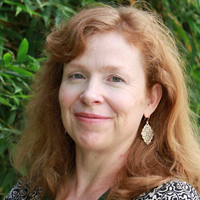
Mary C. Fuller works on the history of early modern voyages, exploration, and colonization. She is also interested in material books and how readers use them, in the past and in the present. She has published articles on Caribbean poetry, exploration narratives and video games, early modern circumnavigations, and Renaissance narratives of travel to Russia, West Africa, Guiana, Newfoundland, and Istanbul. Her books include Voyages in Print: English Travel to America, 1576-1624 (Cambridge University Press, 1995; paperback, 2007) and Remembering the Early Modern Voyage: English Narratives in the Age of European Expansion (Palgrave, 2008). Her teaching spans a broad range of topics, from poetry to scientific expeditions, including subjects cross-listed with CMS, Music, Anthropology, Women’s and Gender Studies, and EAPS. During AY 2010-11, she will be an NEH Fellow at the Huntington Library, working on a book-length study of Richard Hakluyt’s collection of travel narratives and documents, Principal Navigations of the English Nation (1598-1600). She has studied the Japanese martial art of aikido since 1992 and belongs to the MIT Aikido Club.
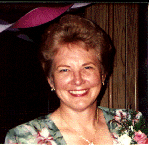
N. Katherine Hayles, Professor of Literature and Director of Graduate Studies at Duke University, teaches and writes on the relations of literature, science and technology in the 20th and 21st centuries. Her book How We Became Posthuman: Virtual Bodies in Cybernetics, Literature and Informatics won the Rene Wellek Prize for the Best Book in Literary Theory for 1998-99, and her book Writing Machines won the Suzanne Langer Award for Outstanding Scholarship. Her work has been recognized by numerous fellowships and awards, including a Guggenheim Fellowship, two fellowships from the National Endowment for the Humanities, a Rockefeller Residential Fellowship at Bellagio, and a Presidential Research Fellowship from the University of California. Her most recent book is entitled How We Think: Digital Media and Contemporary Technogenesis, published in May 2012 from the University of Chicago Press.
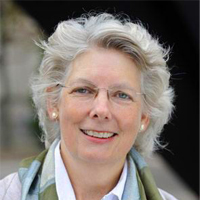
Wyn Kelley, a member of the Literature Faculty since 1985, has taught courses on American literature, literary genres (comedy, melodrama), women writers, and writing about literature, among others. She is author of Melville’s City: Literary and Urban Form in Nineteenth-Century New York (1996). Associate Editor of the Melville Society journal Leviathan, she has published in a number of journals and collections, including Melville and Hawthorne: Writing Relationship, Ungraspable Phantom: Essays on Moby-Dick, Melville and Women, “Whole Oceans Away”: Melville in the Pacific, and the Cambridge Companion to Herman Melville. She is the editor of Blackwell Publishing’s A Companion to Herman Melville and has also written Herman Melville: An Introduction for Blackwell Publishers. A founding member of the Melville Society Cultural Project, based in New Bedford, MA, she works with the New Bedford Whaling Museum on projects, lecture series, exhibitions, and conferences related to Melville and the museum’s concerns.
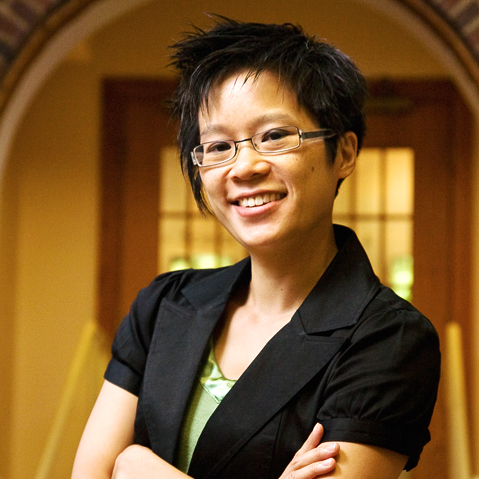
Bonnie Mak is an assistant professor at the University of Illinois, with appointments in the Graduate School of Library & Information Science and the Program in Medieval Studies. She studies the history of medieval manuscripts and early printed books, and analyzes the cultural implications of digitizing such materials. Mak has been a visiting scholar of the Coach House Institute at the University of Toronto, as well as a research fellow at the Huntington Library, and has received grants for her work from the Social Sciences & Humanities Research Council of Canada, the Andrew W. Mellon Foundation, and the Newberry Library of Chicago.
Her book, How the Page Matters (University of Toronto Press, 2011), explores role of the page in the production and transmission of knowledge from the Middle Ages to the modern day, focussing particularly on the dynamic relationship between materiality and meaning. Other publications examine the re-emergence of the notion of authenticity in debates about electronic records. Mak’s current project, Implications of a Digital Revolution, explicates the social, political, and economic pressures that shape digitized data, and considers the consequences of the reconfiguration of historical sources in digital media for the production of knowledge. A recent exhibition, “A Cabinet of Curiosity: the Library’s Dead Time,” produced in collaboration with Julia Pollack, interrogated the practices of scholarly work in the 21st century: selected practices were embodied as artefacts, and presented for scrutiny in the space of the art gallery. Plans are under way to create a portable version of the Cabinet.
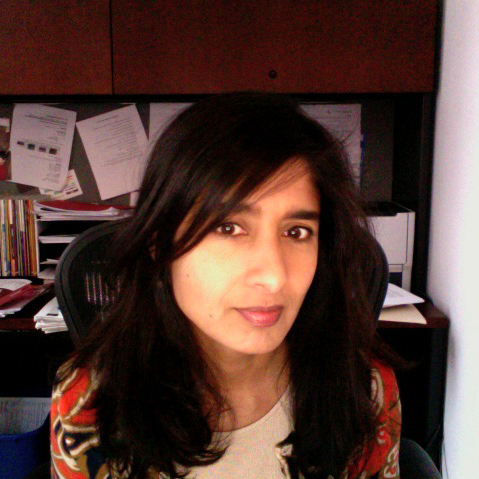
@sylviamath
Gita Manaktala is Editorial Director of the MIT Press, a publisher of cutting-edge scholarship in the sciences, humanities, and social sciences. Until 2009 she served as the press’s Marketing Director with responsibility for worldwide promotion and sales of the press’s titles. She has been a publicist, a promotion manager, and a manager of digital projects. Gita helped to develop CISnet, an online collection of the Press’s computer and information science titles, and E-books at the MIT Press, an online bookstore.
She is active in the Association of American University Presses and teaches in the popular Books Boot Camp workshop offered by the Association of American Publishers’ Professional and Scholarly Publishing Division. She started her career at Grove Press in New York City, where she worked for visionary publisher Barney Rosset. Gita is a graduate of Harvard University and lives with her husband and son in Somerville, MA.

@nickmofo
Nick Montfort writes computational and constrained poetry, develops computer games, and is a critic, theorist, and scholar of computational art and media. He is currently serving as president of the Electronic Literature Organization. His digital media writing projects include the interactive fiction system Curveship; the ppg256 series of 256-character poetry generators; the group blog Grand Text Auto; Ream, a 500-page poem written on one day; Implementation, a novel on stickers written with Scott Rettberg; and several works of interactive fiction: Winchester’s Nightmare, Ad Verbum, and Book and Volume. His latest book, Riddle & Bind (Spineless Books, 2010), contains literary riddles and constrained poems.
His scholarly books include Racing the Beam: The Atari Video Computer System (MIT Press, 2009), with Ian Bogost;Twisty Little Passages: An Approach to Interactive Fiction (MIT Press, 2003), and, 10 PRINT CHR$(205.5+RND(1)); : GOTO 10, a 10-author single-voice book about a one-line Commodore 64 BASIC program. He also edited The Electronic Literature Collection Volume 1 (with N. Katherine Hayles, Stephanie Strickland, and Scott Rettberg, ELO, 2006) and The New Media Reader (with Noah Wardrip-Fruin, MIT Press, 2003).
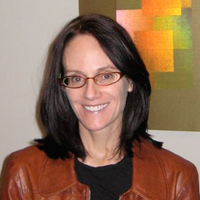
@ritaraley
Rita Raley is a researcher and lecturer at UC Santa Barbara, California. Her work is situated at the intersection of digital media and humanist inquiry, with a particular emphasis on cultural critique, artistic practices, and language (codework, machine translation, and text-based media arts practices). She is the author of Tactical Media (University of Minnesota Press) and co-editor of the second volume of the Electronic Literature Collection. Her most recent articles focus on digital poetics, interventionist media arts practices, Global English, and literary uses of mobile and locative media. At the invitation of the Dutch Foundation for Literature and the BKVB / Mondrian Fund, she was in Amsterdam in December 2011 for workshops and lectures for the Poetry on the Portable Screen project. She is currently teaching courses on distracted reading and bookwork after new media.
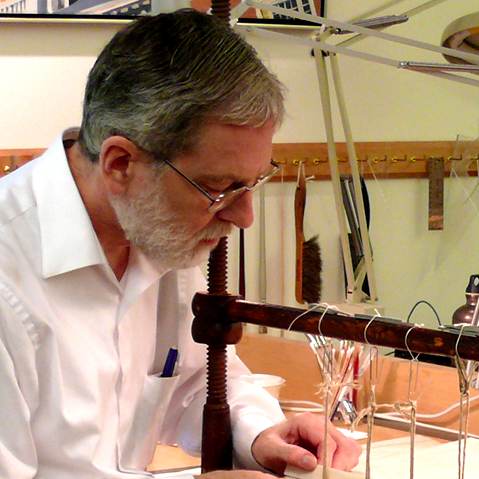
A bench-trained bookbinder, James Reid-Cunningham studied history and art history at Johns Hopkins University and Tufts University before beginning a career in book conservation at Harvard University. He studied bookbinding at the North Bennet Street School in Boston, and was the President of the Guild of Book Workers from 2006 to 2010. In 2003, he was appointed chief conservator of the Boston Athenaeum, where he is currently the associate director for digital programs and preservation. He is a Professional Associate of the American Institute for Conservation of Historic and Artistic Works, and he is the adjunct lecturer in book conservation in the graduate art conservation department at Buffalo State College (SUNY). In 2006, he received the Distinguished Alumni Award from the North Bennet Street School.
In addition to his conservation work, he is the creator of design bindings and book objects exploring traditional bookbinding structures in conjunction with modern materials. He is the proprietor of Hematite Press, a small press that publishes illustrated limited editions of modern texts, with each copy in an original design binding. His books have been exhibited nationally and internationally. His work can be seen at www.reid-cunningham.com.
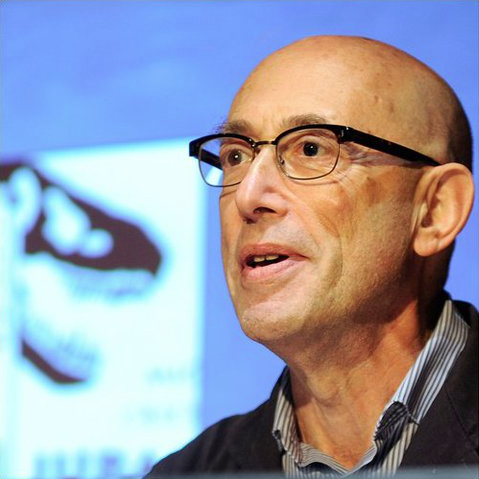
Bob Stein has been engaged with electronic publishing full-time since 1980 when he spent a year researching and writing a paper for Encyclopedia Britannica — “EB and Intellectual Tools of the Future.” In 1984 he founded The Criterion Collection, a critically acclaimed series of definitive films, which included the first supplementary sections and director commentaries. He also founded The Voyager Company which in 1989 published one of the first commercially cd-roms, The CD Companion to Beethoven’s Ninth Symphony, In 1992 Voyager published the first electronic books including Douglas Adams’ Hitchhikers Guide to the Galaxy and Michael Crichton’s Jurassic Park.
In 2004 The Macarthur Foundation provided a generous grant which Stein used to found The Institute for the Future of the Book, a small think & do tank aimed at exploring and hopefully influencing the evolution of new forms of intellectual expression. In 2005 the Institute published the first “networked books” which were instrumental in the recognition of the important shift to social reading and writing as discourse moves from printed pages to networked screens. In late 2010 Stein founded a new company, SocialBook, Inc. with the ambitious goal of building the first viable post-print publishing platform, the first stage of which is now in private beta.
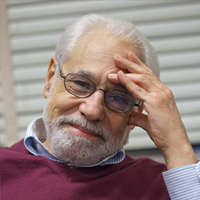
David Thorburn is Professor of Literature at MIT and Director of the MIT Communications Forum. His most recent books (co-edited with Henry Jenkins) are Democracy and New Media and Rethinking Media Change, the launch volumes in the MIT Press series “Media in Transition” of which he is editor in chief. Other writings include Conrad’s Romanticism and many essays and reviews on literature and media in such publications as Partisan Review, Commentary, The New York Times and The American Prospect as well as scholarly journals. He has published poetry in such magazines as The Atlantic Monthly, Threepenny Review and Slate. His essays on television, written in the late 1970s and early 1980s, and his course, “American Television: A Cultural History,” were among the first in the country to examine the medium in a humanistic context. He has also edited collections of essays on romanticism and on John Updike as well as a widely used anthology of fiction, Initiation.
In addition to the keynotes, there will be a number of participants from MIT and the wider community. Each keynote will speak about their stake in the book and take on its history and/or future forms, then the conversation will open into the audience (who will be asked to introduce themselves in the same manner, briefly, before raising their question or comment). We hope that by inviting audience members who are actively engaging with the book (from practitioners to conservationists to librarians to publishers to editors to scholars to readers) to participate, these comments and questions can widen the discussion, lend expertise that might otherwise not be represented by the keynotes, and foster a lively discussion.